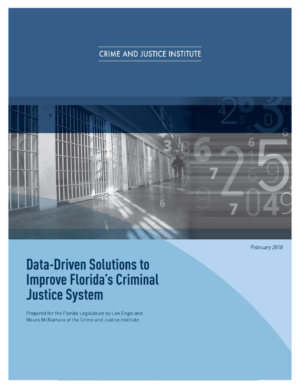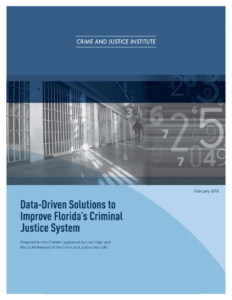
 The Florida State Senate contracted with the Crime and Justice Institute in 2017 to build on the Institute’s previous work analyzing trends in the state’s prison population by further examining the state’s criminal justice system, assess other states’ policies and make recommendations to alleviate strains on the system.
The Florida State Senate contracted with the Crime and Justice Institute in 2017 to build on the Institute’s previous work analyzing trends in the state’s prison population by further examining the state’s criminal justice system, assess other states’ policies and make recommendations to alleviate strains on the system.
In February 2018, CJI released its findings and recommendations for data-driven policy and legislative changes in its report Data-Driven Solutions to Improve Florida’s Criminal Justice System. The analysis found that Florida is sending fewer people to prison than in years past, but those who do end up there are serving longer sentences, including those convicted of low-level, nonviolent offenses. That situation has led to a relatively stagnant prison population of about 100,000 — the third-largest in the United States — which costs taxpayers $2.3 billion annually. The prison population and the financial burden are on track to begin increasing again in 2021.
To safely reduce the prison population and alleviate dangerous overcrowding, CJI recommends a series of data-driven sentencing reforms, expanding alternatives to incarceration, and implementing policies and practices shown to reduce recidivism. States like Texas, Georgia, Utah, and Mississippi have demonstrated that by adopting these types of reforms, it’s possible to reduce incarceration without increasing crime.
For more information